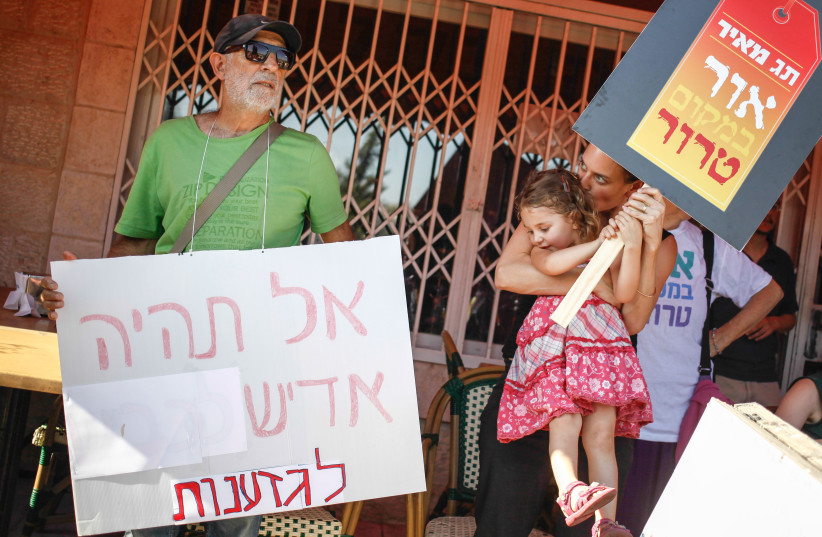Almost half (48%) of the 458 racist incidents reported in 2021 were against Arab or Ethiopian Israelis, according to a report by the Justice Ministry’s Government Unit for Coordinating the Struggle Against Racism published Monday.
Complaints of racist incidents included claims of discrimination by service providers and employers and verbal attacks in the public domain.
Racism by service providers made up 23% of complaints, 11% were done by employers, 10% in the public domain, 7% each against public service employees, and by police and 4% were done in educational settings, as well as in other categories.
A survey of the Israeli-Arab sector carried out leading into Monday’s International Day for the Elimination of Racism found that two-thirds of respondents had either experienced discrimination or knew someone who had.
More than three quarters (77%) of Israeli-Arabs said that they would not file a complaint with the government if they encountered racism in the future because they don’t believe it will truly help the situation.

The 458 incidents were about 10% less than the 506 and 497 racist incidents reported in 2020 and 2019 respectively, but were still much higher than 2017-2018 when the government started to keep track of the issue in a systematic way.
Breaking down the groups by ethnicity, the report found that almost a quarter (24%) of complaints were filed by both Arab-Israelis and by Ethiopian-Israelis, 10% by haredi (ultra-Orthodox)-Israelis, 6% of Israelis from the former USSR, 4% by Sephardim, 7% by Jews with no declared ethnic background, as well as 10% relating to the coronavirus and 12% on a mix of other issues.
The report said that only 36 out of 50 recommendations from the 2016 Task Force led by then-justice ministry director-general Emi Palmor had been implemented.
Examples in the report range from racism from low-level hospital bureaucrats against patients to school administrators against parents and police officers against Ethiopians in parks and against Arabs on buses.
In one case, Ethiopian-Israeli Yuval Mekoria posted on Facebook about incidents in which he said he had been discriminated against at a Victory Supermarket chain store.
The specific store and the chain both sued him for defamation for a combined amount of NIS 170,000.
The Justice Ministry unit for assisting individuals from weaker sectors of society defended him and counter-sued Victory for systematic racism.
In May 2021, the court rejected the defamation suits against Mekoria and granted him a judgment of NIS 100,000 against Victory.
Another case involved El Al security’s mistreatment of Druze-Israelis upon their return to Ben-Gurion Airport from being on an organized tour and trip to South Africa.
The report said that the airline’s security personnel categorized them as Arabs and put them through an intense, humiliating and unfounded interrogation process.
In yet another instance, policemen inspecting a bus, issued fines to all of the Israeli-Arabs on the bus who were not wearing seat belts, but did not issue fines to the Jewish-Israelis, most or all of whom were also not wearing seat belts.
The unit for assisting weaker sectors of society appealed to the police, which canceled the fines and disciplined the policemen involved.
